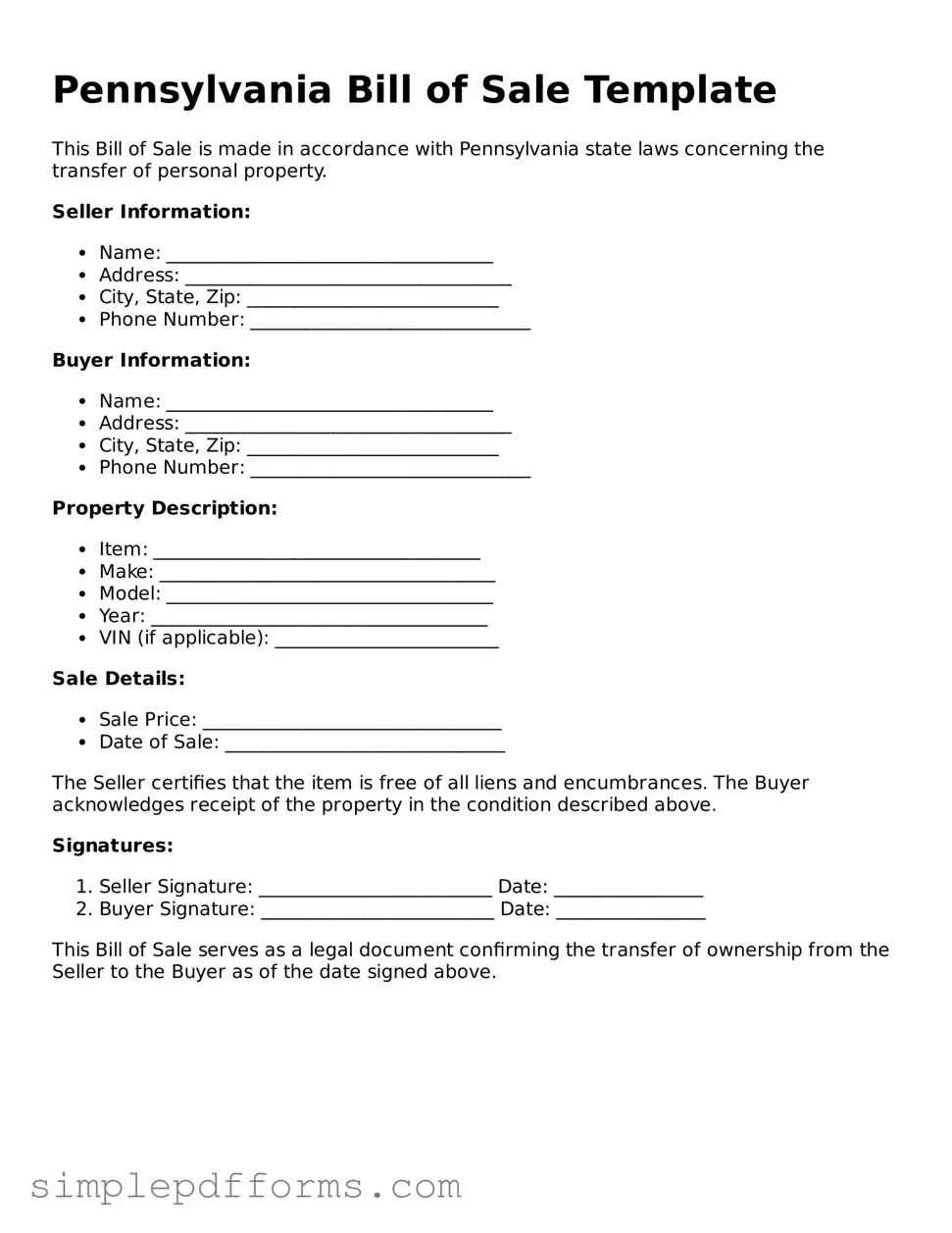Attorney-Verified Bill of Sale Document for Pennsylvania State
A Pennsylvania Bill of Sale form is a legal document that records the transfer of ownership of personal property from one party to another. This form serves as proof of the transaction and includes important details such as the buyer's and seller's information, a description of the item, and the sale price. Having a properly completed Bill of Sale can protect both parties and ensure a smooth transfer of ownership.
Open Bill of Sale Editor Now

Attorney-Verified Bill of Sale Document for Pennsylvania State
Open Bill of Sale Editor Now

Open Bill of Sale Editor Now
or
Get Bill of Sale PDF Form
Your form is waiting for completion
Complete Bill of Sale online in minutes with ease.